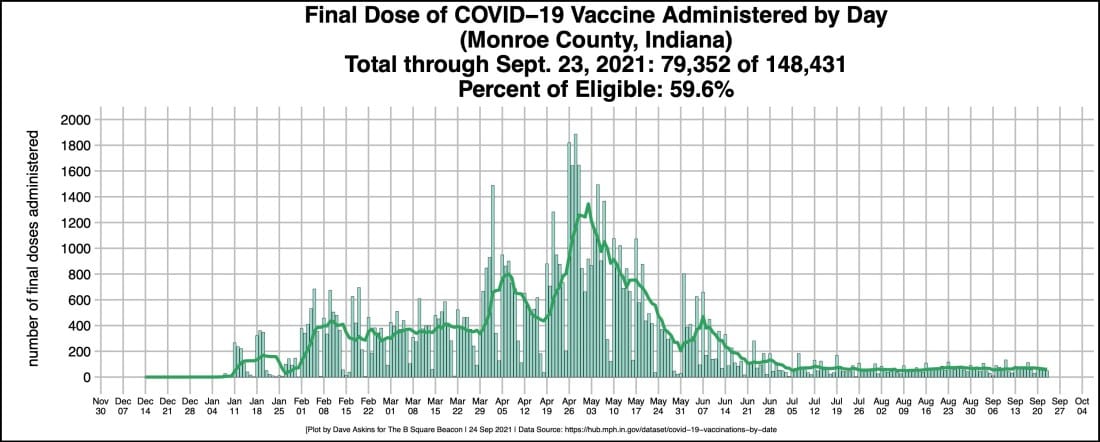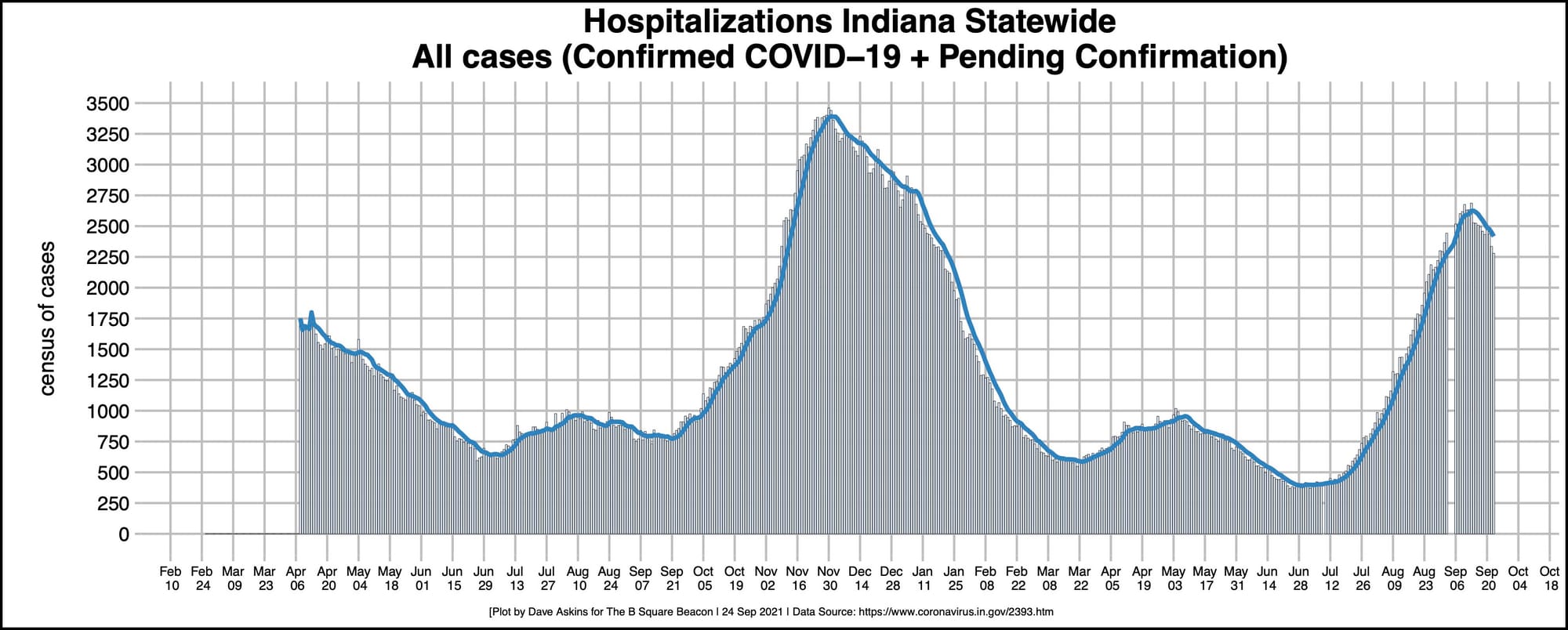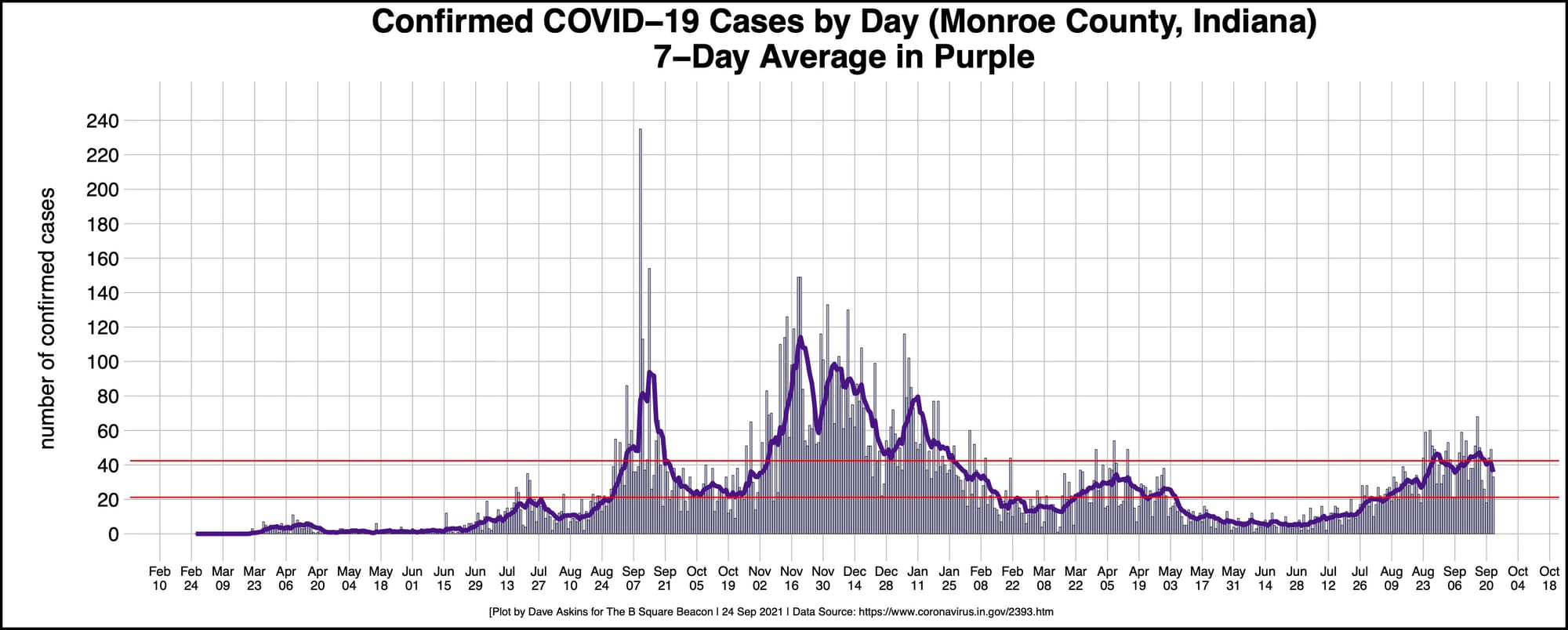Continued calls for vaccination against COVID-19: “There’s no reason to be ‘right’—we all just want to be happy here.”




The percentage of eligible Monroe County residents who have been vaccinated against the COVID-19 pandemic virus is still just under 60 percent.
At the current pace of vaccinations in the county, which is around 60 additional people a day, it will take another week or so to eke out the next few tenths of a point to get past the 60-percent milestone.
At Friday’s weekly news conference of local leaders on pandemic response, Monroe County’s department of health public information officer Kathy Hewett said about the remaining 40 percent of the eligible population, “We still have a ways to go.”
For those who have not yet received a jab, could a decision now to get vaccinated feel like an admission that they’ve been wrong up to this point?
Responding to a question from a reporter about that possibility, Indiana University’s health officer Aaron Carroll said, “There’s no reason to be ‘right’—we all just want to be happy here.”
Carroll continued, “Everyone will be safer if they get vaccinated.” He added, “If you need an excuse, more recently, I think you could point to recent data, and that the hospitals are still filling up, that things are still very dangerous.”
Of the 46 patients in IU Health’s Bloomington, Bedford and Paoli hospitals, 37 (80 percent) were unvaccinated, said IU Health south central region president Brian Shockney said at Friday’s news conference.
Even though hospitalization numbers appear to have peaked, and are hinting at a decline statewide and regionally, Shockney said the influx of COVID-19 patients means that critical care beds are still a “point of concern.” About 20 percent of such beds are still available, Shockney said. He continued, “We’re still postponing needed surgeries and other procedures to ensure resources are focused on caring for these very sick patients.”
Other reasons cited by Carroll on Friday to get vaccinated now include the more infectious Delta variant of the virus. “The likelihood that you’re going to get infected is higher now than it was before,” Carroll said.
Another new piece of information on which people might base a decision to get vaccinated, Carroll pointed out, includes the fact that the FDA has given Pfizer’s vaccine full approval, when it had previously been approved on an emergency basis.
The full approval means that even more safety data is available than in the past, Carroll said. He added that there’s clear evidence that vaccines are “incredibly good” at preventing the bad outcomes that people are worried about—hospitalization and death.
For people who are hesitant to get vaccinated because they might not have support for that decision in their social circles or even in their own families, Shockney gave an assurance that confidentiality is absolute. “We follow all the HIPAA guidelines, and if you would come to get a vaccine, no one would know but you.” Shockney said, “Everyone who is there keeps it confidential…They are sworn to secrecy. They cannot tell by law.”
About the idea that getting the vaccine only now would mean you were wrong before, Bloomington mayor John Hamilton drew an analogy to politics. “Just because you change your mind doesn’t mean you were wrong,” Hamilton said. He added, “As a politician, that can happen, too, you know. You change your mind and it doesn’t mean you were wrong, or if it does, it’s OK.”
Hamilton wrapped up his point by citing Centers for Disease Control director Rochelle Walensky, who has been quoted in different news outlets about the need to be humble: “But I think we really do have to be humble and say that this virus, this pandemic, has given us twists and turns so we can’t get our eye off the ball and we do have to continue to monitor really carefully.”




Comments ()